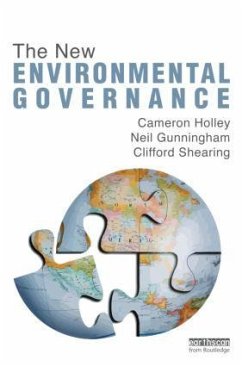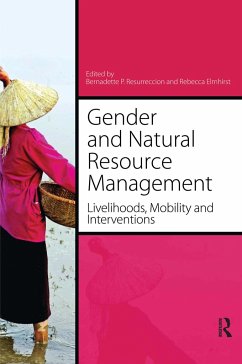
Collaborative Environmental Management
What Roles for Government-1
Versandkostenfrei!
Versandfertig in 1-2 Wochen
48,99 €
inkl. MwSt.
Weitere Ausgaben:

PAYBACK Punkte
24 °P sammeln!
Collaboration is increasingly favored over regulatory enforcement or litigation as a means to settle environmental conflicts, and government officials at all levels have been experimenting with collaboration in a wide variety of contexts. Yet questions remain about the best way to ensure that government involvement supports collaboration rather than introduces barriers. The goal of this thoughtful work is to analyze data from a variety of cases to explain how the different roles government plays in collaborative environmental management lead to different processes and outcomes. Looking at examples where government has acted to lead, encourage, or follow in the process of collaboration, the authors apply their new theoretical framework to cases involving the management of watersheds, rivers, animal habitats, and forests.
Collaboration has become a popular approach to environmental policy, planning, and management. At the urging of citizens, nongovernmental organizations, and industry, government officials at all levels have experimented with collaboration. Yet questions remain about the roles that governments play in collaboration--whether they are constructive and support collaboration, or introduce barriers. This thoughtful book analyzes a series of cases to understand how collaborative processes work and whether government can be an equal partner even as government agencies often formally control decision making and are held accountable for the outcomes. Looking at examples where government has led, encouraged, or followed in collaboration, the authors assess how governmental actors and institutions affected the way issues were defined, the resources available for collaboration, and the organizational processes and structures that were established. Cases include collaborative efforts to manage watersheds, rivers, estuaries, farmland, endangered species habitats, and forests. The authors develop a new theoretical framework and demonstrate that government left a heavy imprint in each of the efforts. The work concludes by discussing the choices and challenges faced by governmental institutions and actors as they try to realize the potential of collaborative environmental management.














